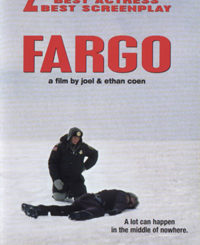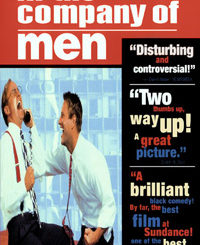 When We Were Kings
When We Were Kings
with Muhammed Ali, George Foreman, Don King
Written and directed by Leon Gast
(Gramercy Pictures)
by Sam Ames
Before George Foreman pitched mufflers on TV; before Muhammad Ali lit the torch at last year’s Olympics; and before fight promoter Don King redefined the meaning of big hair, they all made history in a 1974 championship boxing match in Zaire, Africa that was captured in Leon Gast’s excellent documentary, When We Were Kings.
Promoter Don King, only an obscure figure in those days, got Ali and Foreman under contract to fight each other for a previously unheard of five million dollar payoff for each fighter. He then persuaded Zaire’s infamous dictator, Mobutu Sese Seko, a man whose idea of crime control is rounding up truck loads of criminals and randomly shooting some of them, to put up the ten million dollars from his poor country’s cash reserves, and the legendary “Rumble In The Jungle” was on.
“Foreman was awesome,” says writer Norman Mailer, who covered the fight and gives commentary for the film along with sports writer George Plimpton. Foreman was the reigning champion at the time, and stronger, faster, and quicker than Ali by all accounts. He was also a murderous puncher who pulverized opponents into dust. One can only imagine how powerful Foreman was in the ’70s, when he was still strong enough to come back to ring in the ’90s to fight men half his age. And win.
Ali was undaunted, and his garrulous witty responses to his critics provide some of the most entertaining moments of the film. “You think the world was surprised when Nixon resigned, just wait’ll I kick George Foreman’s behind.” The film shows why Ali is so revered around the world. His indomitable charisma shines in scenes that show him out greeting the public during the six week delay before the fight. In fact, Ali’s radiant personality carries the film and makes it worthwhile. He endeared himself to his African hosts so much that he got the crowd of thousands chanting “Ali, boma ye!” (“Ali, kill him!”) before the opening bell.
But things would not go easy for him in the ring. During the first round, Ali tried to knock Foreman out quickly by throwing unorthodox and risky punches to catch him off guard. When the plan backfired, and Foreman unleashed his fury, Ali knew his “worst nightmare,” in Norman Mailer’s words, had come true. For the first time in his life, Ali knew he was fighting an opponent who was stronger than he was, quicker than he was, and not scared of him, and “for the first time that I can remember….” Mailer says, “I saw fear in his eyes.” But then a curious thing happened, or maybe it was not so curious after all. In a moment that tells much about Ali as a person and a fighter, he turned to the people around him for support. As Ali waited alone in his corner for the start of the second round, he waved his gloved arm up and down like a maestro conducting his orchestra, and incited the crowd to chant for him once more. Their cries of “Ali, boma ye!” filled the arena, and seemed to revive the underdog’s spirit. Then, as the bell sounded, Ali stood up a little straighter and stepped out into the ring and into boxing history.
The film does a remarkable job capturing the events that surrounded the fight and defines it at the same time, so it ranks as much more than a sports documentary. Musical guests such as BB King, James Brown, and the Spinners were flown in, and the footage of their performances gives the film and the event a festival atmosphere. The film provides a great perspective on Don King and Mobutu as well, and since this is the ’70s, the sideburn coverage is extensive, too.



